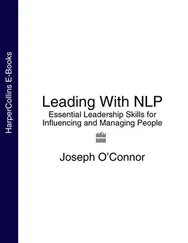John Gray - Children Are from Heaven - Positive Parenting Skills for Raising Cooperative, Confident, and Compassionate Children
Здесь есть возможность читать онлайн «John Gray - Children Are from Heaven - Positive Parenting Skills for Raising Cooperative, Confident, and Compassionate Children» весь текст электронной книги совершенно бесплатно (целиком полную версию без сокращений). В некоторых случаях можно слушать аудио, скачать через торрент в формате fb2 и присутствует краткое содержание. Год выпуска: 1999, ISBN: 1999, Издательство: HarperCollins e-books, Жанр: psy_childs, sci_pedagogy, Психология, на английском языке. Описание произведения, (предисловие) а так же отзывы посетителей доступны на портале библиотеки ЛибКат.
- Название:Children Are from Heaven: Positive Parenting Skills for Raising Cooperative, Confident, and Compassionate Children
- Автор:
- Издательство:HarperCollins e-books
- Жанр:
- Год:1999
- ISBN:978-0-06-133886-1
- Рейтинг книги:4 / 5. Голосов: 1
-
Избранное:Добавить в избранное
- Отзывы:
-
Ваша оценка:
- 80
- 1
- 2
- 3
- 4
- 5
Children Are from Heaven: Positive Parenting Skills for Raising Cooperative, Confident, and Compassionate Children: краткое содержание, описание и аннотация
Предлагаем к чтению аннотацию, описание, краткое содержание или предисловие (зависит от того, что написал сам автор книги «Children Are from Heaven: Positive Parenting Skills for Raising Cooperative, Confident, and Compassionate Children»). Если вы не нашли необходимую информацию о книге — напишите в комментариях, мы постараемся отыскать её.
Children Are from Heaven: Positive Parenting Skills for Raising Cooperative, Confident, and Compassionate Children — читать онлайн бесплатно полную книгу (весь текст) целиком
Ниже представлен текст книги, разбитый по страницам. Система сохранения места последней прочитанной страницы, позволяет с удобством читать онлайн бесплатно книгу «Children Are from Heaven: Positive Parenting Skills for Raising Cooperative, Confident, and Compassionate Children», без необходимости каждый раз заново искать на чём Вы остановились. Поставьте закладку, и сможете в любой момент перейти на страницу, на которой закончили чтение.
Интервал:
Закладка:
Boys need more trust, though too much trust for a girl may be interpreted as not caring enough. Fathers mistakenly tend to give their daughters what boys need, while mothers mistakenly tend to give boys the support girls would need. Understanding how boys and girls have different needs helps parents be more successful in nurturing their children. In addition, mothers and fathers argue less about each other’s parenting style. Daddies Are from Mars and Mommies Are from Venus.
2. It’s okay to make mistakes.All children make mistakes. It is perfectly normal and to be expected. Making a mistake does not mean something is wrong with you, unless your parents react as if you should not have made a mistake.
Mistakes are natural, normal, and to be expected. The way children learn this is primarily by example. Parents can most effectively teach this principle by making sure they acknowledge their own mistakes in dealing with and supporting their children and each other.
When children see their parents apologizing on a regular basis, they gradually learn to be accountable for their own mistakes. Instead of teaching children to apologize, parents demonstrate. Children learn from role models not by lectures. Not only do children learn to be more responsible, but, by repeatedly forgiving their parents for their mistakes, children gradually learn the important skill of forgiveness.
Children come into this world with the ability to love their parents, but they cannot love or forgive themselves. They learn to love themselves by the way they are treated by their parents and how their parents react when they make mistakes. When children are not shamed or punished for their mistakes, they have a better chance to learn the most important skill: the ability to love themselves and accept their imperfections.
This skill is learned by repeatedly experiencing that their parents make mistakes and are still lovable. Shaming or punishing prevents children from developing self-love or the ability to forgive themselves. Throughout Children Are from Heaven , parents learn effective alternatives to spanking, shaming, and punishing that involve new ways of asking instead of ordering, giving rewards instead of punishments, giving time outs instead of spanking. These new positive parenting skills are described in greater detail through chapters 3 through 8. A time out, if given correctly and persistently, is just as powerful a deterrent as spanking and punishment.
3. It’s okay to have negative emotions.Such negative emotions as anger, sadness, fear, sorrow, frustration, disappointment, worry, embarrassment, jealousy, hurt, insecurity, and shame are not only natural and normal, but an important part of growing up. Negative emotions are always okay and they need to be communicated.
Parents must learn to create appropriate opportunities for children to feel and express their negative emotions. Although negative emotions are always okay, how, when, and where our children express them is not always appropriate. Tantrums are an important part of a children’s development, but they need to learn the time and place. On the other hand, you must make sure that you are not placating a child to avoid a tantrum, otherwise tantrums will come out when you don’t have an opportunity to give your child a time out and deal with the problem at hand more effectively.
New communication skills must be learned and practiced to increase children’s awareness of what they are feeling, otherwise they will go out of control, resist your authority, and act out on pent-up feelings. In this book, parents will learn to deal effectively with their own upset feelings. What parents suppress, their children will express in addition to their own upset feelings. This principle explains why children lose control at the most inconvenient times, particularly at stressful and overwhelming times when we are trying to keep a lid on our own feelings.
Positive parenting involves not making children responsible for how parents feel. When children get the message that their feelings and the needs for understanding and affection underlying those feelings are an inconvenience, they will begin to suppress their feelings and disconnect from their true self and all the gifts that come from being authentic.
“Enlightened” parents, who recognize the importance of feelings, often make the mistake of teaching their children to feel by sharing their own emotions too much. The best way to teach awareness of feelings is to listen and help identify feelings with empathy. Parents can best share their own negative feelings by telling stories of how they felt growing up in reaction to some of their challenges in life. The downside of sharing your own negative feelings with your children is that it makes children overly responsible. These children assume too much blame and disconnect from their own inner feelings. They eventually pull away and stop talking to you.
For example, telling a child, “When you climb that tree, I am afraid you will fall” has the gradual effect of making the child feel manipulated and controlled by negative feelings. Instead, an adult should say, “Climbing trees is not completely safe. I only want you to climb when I am around.” This is not only more effective, but it also teaches children not to make decisions based on negative emotions.
The child cooperates not to protect the parent from the discomfort of feeling afraid, but because the parent has asked them to do something.
Parents can help their children develop an increased awareness of feelings by empathizing, acknowledging, and listening, not by sharing their own feelings. Sometimes, even directly asking children how they feel or what they want may give them too much power. New listening skills must be used to draw out feelings and to understand a young child’s want and needs. “Permissive” parents will learn how not to be ruled by or manipulated by children’s wants and feelings. “Demanding” parents will learn the many ways they unknowingly shame their children for having negative feelings.
By learning to feel and communicate negative emotions, children most effectively learn to individuate from their parents, developing a strong sense of self, and gradually discover within themselves a wealth of inner creativity, intuition, love, direction, confidence, joy, compassion, conscience, and the ability to self-correct after making a mistake. All these advanced life skills, which make a person shine out in this world and achieve great success and fulfillment, come from staying in touch with feelings and being able to let go of negative feelings. Successful people feel their losses, but they bounce back because they have the ability to let go of negative feelings. Most people who do not achieve personal success are either numb to their inner feelings, make decisions based on negative feelings, or just remain stuck in negative feelings and attitudes. In each case, they are held back from making their dreams come true.
4. It’s okay to want more.Too often children get the message that they are wrong, selfish, or spoiled for wanting more or for getting upset when they don’t get what they want. Parents are too quick to teach the virtues of gratitude instead of giving their children permission to want more. “Be grateful for what you have” is too quick a reply to a child’s desire for more.
Children don’t know how much is acceptable to ask for and should never be expected to know. Even as adults, we still have difficulty determining how much we can ask for without offending or appearing too demanding or ungrateful. If adults have difficulty, then clearly we should not expect our children not to.
Positive parenting skills teach children how to ask for what they want in ways that are respectful to others. At the same time, parents will learn how to say no without getting upset. Children will feel free to ask for what they want, knowing that they will not be shamed. They will also recognize that just because they ask doesn’t mean they will get what they want.
Читать дальшеИнтервал:
Закладка:
Похожие книги на «Children Are from Heaven: Positive Parenting Skills for Raising Cooperative, Confident, and Compassionate Children»
Представляем Вашему вниманию похожие книги на «Children Are from Heaven: Positive Parenting Skills for Raising Cooperative, Confident, and Compassionate Children» списком для выбора. Мы отобрали схожую по названию и смыслу литературу в надежде предоставить читателям больше вариантов отыскать новые, интересные, ещё непрочитанные произведения.
Обсуждение, отзывы о книге «Children Are from Heaven: Positive Parenting Skills for Raising Cooperative, Confident, and Compassionate Children» и просто собственные мнения читателей. Оставьте ваши комментарии, напишите, что Вы думаете о произведении, его смысле или главных героях. Укажите что конкретно понравилось, а что нет, и почему Вы так считаете.












